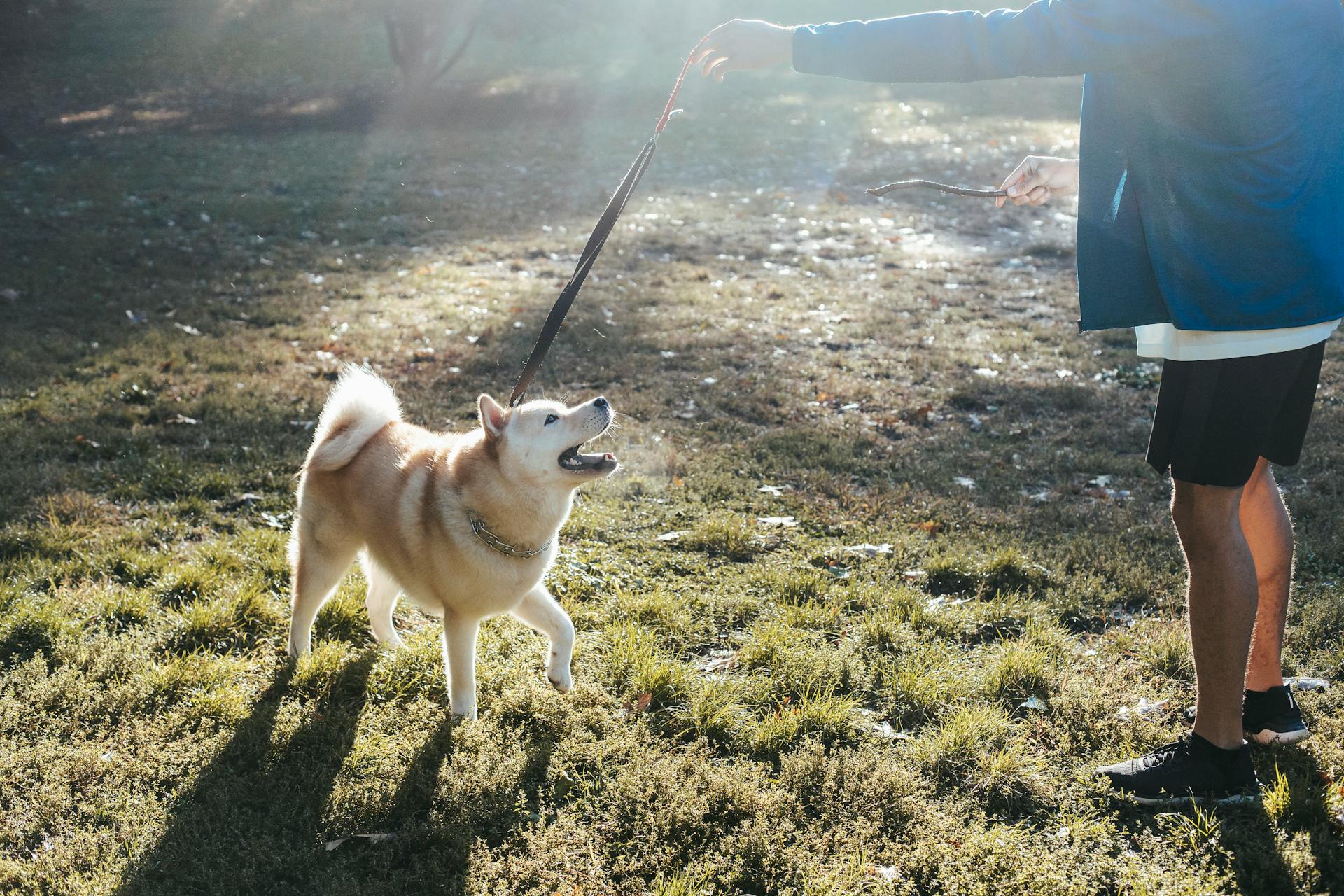
The USDA dog health certificate process can be a bit overwhelming, but don't worry, I've got you covered. The process typically starts 10 days before travel, with a visit to a licensed veterinarian who will examine your dog and provide a health certificate.
The health certificate must be issued by a USDA-accredited veterinarian, and it's essential to choose one who is experienced in issuing certificates for international travel. The veterinarian will review your dog's medical history and perform a physical examination to ensure they are healthy enough for travel.
The health certificate will include information such as your dog's name, age, breed, and vaccination history. It will also include a statement from the veterinarian confirming that your dog is free from certain diseases and conditions.
Importing and Exporting Pets
Traveling with your pet requires careful planning, especially when it comes to health certificates. Some countries allow treatments to be completed after endorsement, but it's essential to check with your airline for specific requirements.
If you're traveling to countries like Finland, Ireland, Norway, UK, or Malta, you may need to administer tapeworm treatment to your dog before traveling. It's also crucial to obtain a health certificate from a USDA Accredited Veterinarian and have it endorsed by the USDA if required.
A health certificate is documented proof that your pet meets the requirements of the destination country. You should research the required tests for your cat or dog as soon as possible, as some certificates are only valid for 10 days.
To ensure a smooth travel experience, it's vital to understand the requirements of the destination country. Some countries require consulate approval or pre-notification, so be sure to check the necessary documents before traveling.
Here's a quick rundown of the steps to take when traveling with your pet:
- Get a health certificate from a USDA Accredited Veterinarian and have it endorsed by the USDA if required.
- Check with your airline for any additional requirements.
- Make sure all required paperwork is completed correctly and the health certificate is endorsed (if needed).
- Bring the original signed or endorsed paperwork with you during travel.
If you're returning to the United States with your pet, you can find detailed information on the USDA APHIS Pet Travel Website.
If this caught your attention, see: Pet Health Dog Tear Stain Remover
USDA Endorsement Process
The USDA endorsement process can be a bit confusing, but don't worry, I've got you covered. The first step is to work with your accredited veterinarian to complete, sign, and date the health certificate. They should then submit the certificate to the USDA Endorsement Office in the Veterinary Export Health Certification System (VEHCS).
If your veterinarian provides you with the signed health certificate to send to the USDA Endorsement Office, it's a good idea to send it via overnight express service, such as FedEx or UPS, to minimize delays. This will ensure that your paperwork is processed quickly and efficiently.
You should also be aware that USDA approval can take up to a week, so plan accordingly and give yourself plenty of time to wait for it to be processed before your departure date. The USDA charges a processing fee starting at $38, which can vary depending on how much information is required by your host country.
To give you a better idea of the process, here are the steps you'll need to take to obtain a USDA-endorsed health certificate:
- Begin researching via APHIS Pet Travel as early as possible to find out what requirements your destination country has for your pet.
- Gather all of the necessary information for your pet, including vaccine records, an up-to-date signed rabies certificate, your pet's microchip number, and any relevant tests that may be required.
- Make an appointment for your international health certificate and give yourself enough time to wait for it to be processed before your departure date.
- Bring your pet to their first health certificate appointment with all the necessary paperwork, and one of our USDA-accredited veterinarians will examine your pet and administer any necessary vaccinations, tests, and/or treatments.
- At your second appointment, you will pick up your pet's international health certificate, which may be sent to you via FedEx if your destination country requires original documentation.
Traveling with Pets
Traveling with pets requires some planning and preparation, but with the right information, you can ensure a smooth journey for both you and your furry friend.
First, you'll need to obtain a health certificate for your pet, which is documented proof that they meet all the requirements for travel to your destination. This certificate must be issued by a USDA Accredited Veterinarian and endorsed by USDA when required.
It's essential to research the required tests your cat or dog needs for travel as soon as possible, as some health certificates are only valid for 10 days. In fact, most health certificates are only valid for 10 days, so make sure to plan accordingly.
Some countries allow treatments to be completed after endorsement, such as tapeworm treatment for dogs traveling to Finland, Ireland, Norway, UK, and Malta. But it's crucial to check with your airline to determine what requirements they may have, if any.
To return to the United States with your pet, visit the USDA APHIS Pet Travel Website's Bring Your Pet into the U.S. From a Foreign Country for detailed and important information.
Here are some key things to keep in mind when traveling with your pet:
- Some countries require consulate approval or pre-notification.
- Airlines may have different or additional requirements, so be sure to check with them.
- Electronic versions of documents will not be accepted by officials of the destination country, so make sure to bring the original signed or endorsed paperwork.
- Be sure all the required paperwork is completed correctly, and the health certificate(s) are endorsed (if needed).
Domestic Certificates and Requirements
Traveling with your dog requires a domestic health certificate, which must be obtained at least 8-10 days before your departure date. This is to ensure your dog is healthy and current on all vaccinations and tests.
Service animals are not exempt from this requirement, and airlines may provide misleading information about health certificates. In reality, health certificates are required and randomly inspected by destination state's health/agriculture personnel, not by airline staff.
To obtain a domestic health certificate, you'll need to schedule an appointment with a veterinarian, who will examine your dog and provide the necessary documentation. You'll need to provide the exact address of your departure and destination, as well as your dog's medical and vaccine information.
APHIS Pet Travel is a great resource to start your research and ensure you understand the requirements for your destination state.
Frequently Asked Questions
What is a letter of good health for a dog?
A health certificate for dogs confirms they're up to date on vaccinations and in good health, ensuring the safety of your pet and others. This document is essential for dog owners to provide proof of their pet's health status.
Sources
- https://www.dshs.texas.gov/notifiable-conditions/zoonosis-control/laws/animal-import-export-requirements
- https://www.aphis.usda.gov/pet-travel/us-to-another-country-export/pet-travel-guidance-pets-traveling-another-country-united
- https://beverlyrobertsonvet.com/travel-and-health-certificate-for-dogs-and-cats/
- https://www.quailhollowvet.com/site/health-certificates-travel
- https://sunridgeanimalhospital.com/services/pet-health-certificates
Featured Images: pexels.com


